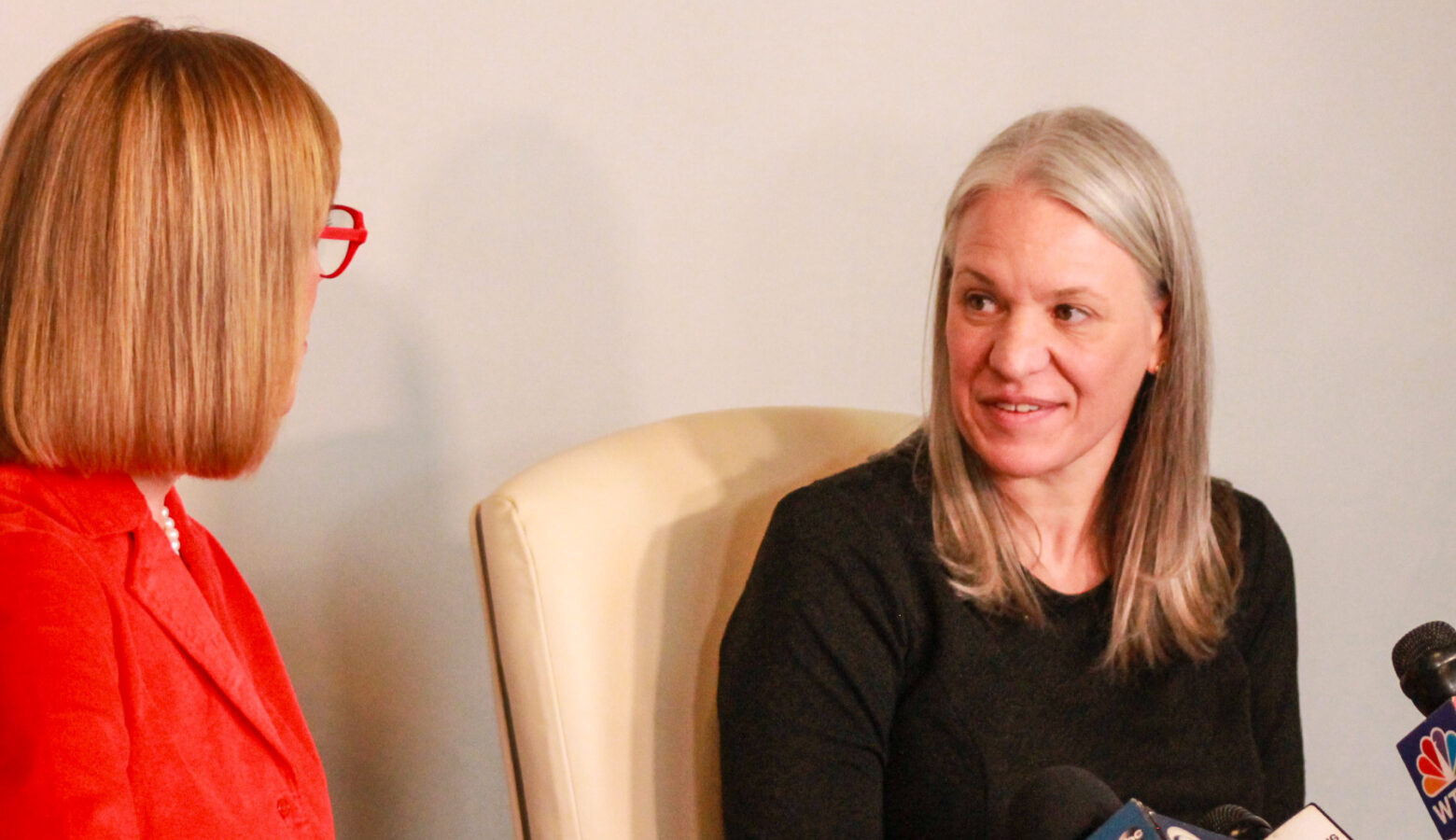Lieutenant governor calls for FSSA audit, pause on proposed cuts following Medicaid shortfall

The Family and Social Services Administration proposed cuts to a program that supports care for children with disabilities in response to a $1 billion shortfall. Indiana’s lieutenant governor and families of medically complex children are calling for FSSA to pause the implementation of the cuts.
Lt. Gov. Suzanne Crouch publicly called for FSSA to pause the proposed cuts for the second time on Monday, and added a call for an independent, outside audit of the agency.
Crouch also asked for support from the legislature.
“I have called upon them to step in if the governor’s office and FSSA don’t look at fixing the problem,” Crouch said.
Republican leaders said the attendant care issue doesn’t require legislation this session and will be resolved through the agency’s normal rulemaking process.
Melanie Kandzierski’s 3-year-old daughter Rosie has Dravet syndrome, a rare form of epilepsy that can be difficult to provide care for. Kandzierski said the cuts to attendant care would take away the resources to provide adequate care for her daughter.
“It’s discriminatory against disabled people because they’re removing the services that will allow my child to stay part of this community,” Kandzierski said. “I will not allow her to be segregated by budgetary mistakes.”
FSSA announced the changes in January, which said legally responsible individuals (LRI) would no longer be able to provide attendant care starting July 1, 2024. The announcement also said FSSA would work with families using LRI-provided attendant care transition to a different provider or “determine a transition plan to the service of structured family caregiving.”
READ MORE: Policymakers call for FSSA to pause proposed Medicaid cuts after budget shortfall
Join the conversation and sign up for the Indiana Two-Way. Text “Indiana” to 765-275-1120. Your comments and questions in response to our weekly text help us find the answers you need on statewide issues, including our project Civically, Indiana and our 2024 legislative bill tracker.
Kandzierski said she would have to go back to work without the financial support for LRI-provided attendant care – but even then the other program wouldn’t support Rosie’s needs.
Rosie’s condition would require more than a typical home health aide could provide. When Rosie has a seizure, the protocol requires administering rescue medicine, meaning her family would need to hire a registered nurse. Kandzierski said the structured family caregiving stipend would only cover a few hours of care, which isn’t enough to support a full-time job.
However, Kandzierski said she wants to be able to care for her daughter, and feels more comfortable providing that care herself.
“Our experience has transformed us into experts in managing these critical situations, ensuring Rosie’s safety and well-being during these challenging moments,” Kandzierski said. “In fact, I’d like to mention that quite often I can administer the rescue medications quicker than the medical team at the hospital can.”
Kandzierski said medically complex children shouldn’t be scapegoats for FSSA’s “budgetary incompetencies.” She said FSSA’s timeline to implement this doesn’t give families like hers enough time to come up with a plan for the people they care for.
Lawmakers said back in December the forecasting error in the state budget was because of the demand for home- and community-based long-term care services and FSSA’s communication to lawmakers.
Lt. Gov. Suzanne Crouch is one of nine candidates running for governor.
Abigail is our health reporter. Contact them at aruhman@wboi.org.

